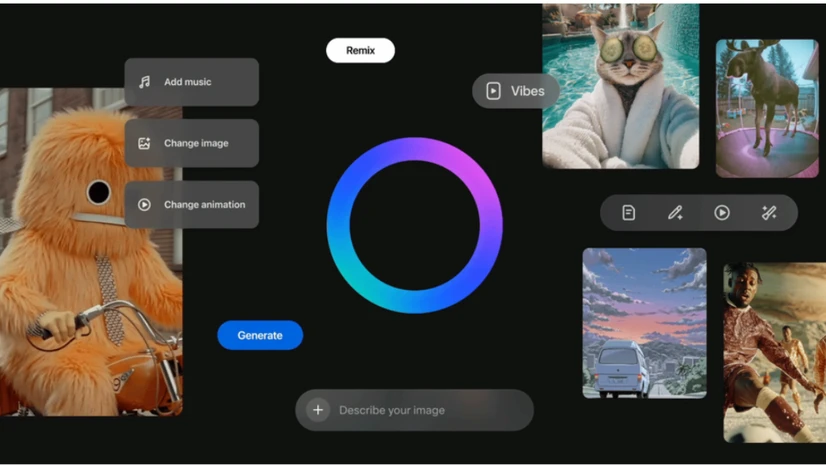Artificial intelligence has changed almost every corner of the digital world, from search engines to video creation. What started as a niche experiment has turned into a mainstream tool that individuals and businesses use every day. But as AI Generated Content becomes increasingly common across social media feeds, news platforms, and marketing campaigns, the reactions from tech founders and executives are becoming more polarised.
A recent spotlight from industry insiders revealed conflicting emotions surrounding Meta’s growing use of AI tools to produce automated posts, avatars, and even influencer style characters. While some innovators view this shift as an inevitable step toward hyper efficient digital communication, others worry that the internet is slowly drifting away from human authenticity. What was once a platform for personal expression is now filled with synthetic faces, AI written captions, and algorithmically optimised opinions.
Why AI Generated Content Is So Controversial
To understand why discussions around AI Generated Content have become so intense, it is important to look at how it is currently being used. Social platforms like Meta are experimenting with AI chatbots that mimic celebrities, automated news summaries, and personalised virtual friends. For brands and creators, these tools reduce production time and expand content output. A single person can now manage what once required an entire marketing team.
However, critics argue that efficiency comes at the cost of originality. When every post is optimised by data driven algorithms, content becomes repetitive. The internet begins to feel like an endless echo chamber where synthetic voices drown out real human stories. Executives in the article voiced concerns that people might lose interest in platforms if they no longer know whether they are interacting with a living person or a machine.
Some founders warn that AI Generated Content could accelerate misinformation. If machines can generate convincing videos or text in seconds, malicious actors could spread fake news faster than fact checkers can respond. Trust, which is already fragile in online spaces, could collapse entirely unless strong verification tools are introduced.
The Business Case For AI Generated Content
Despite growing concerns, many tech leaders defend AI Generated Content as a powerful tool for creativity and accessibility. Not everyone has the ability to write long captions, edit videos, or design graphics. AI tools allow small businesses, independent artists, and everyday users to compete with larger organisations. A small boutique can generate product descriptions, promotional videos, and customer responses instantly without hiring an agency.
Startups in the article suggested that AI should be seen as a support system rather than a full replacement for human creativity. They believe that the best results come from hybrid creation, where humans provide direction and emotion while AI handles structure and formatting. This model allows individuals to produce more content without burning out.
Another argument in favour of AI Generated Content is personalisation. Instead of broadcasting generic messages, brands can now tailor posts to individual preferences. A sports fan might receive a completely different version of an advertisement compared to someone interested in fashion. This level of targeting was impossible before AI became mainstream.
Calls For Transparency And Regulation
As adoption increases, many founders have begun calling for transparent labelling of AI Generated Content. They argue that viewers should always be able to tell whether they are consuming human created or AI assisted material. This does not require banning artificial posts but rather implementing clear visual indicators.
Executives also emphasise the importance of ethical boundaries. Some worry that AI personas could manipulate emotions or mislead vulnerable users. For example, teenagers interacting with AI influencers might develop unhealthy expectations about beauty, success, or social dynamics. If platforms like Meta continue deploying AI personalities, they must establish strong safety protocols.
Several leaders proposed an industry wide code of conduct. This framework would outline best practices for responsible AI usage, similar to how advertising and journalism industries operate under strict rules. Companies that violate these standards could face penalties or lose public trust.
Finding Balance Between Innovation And Authenticity
The debate around AI Generated Content is not about choosing between technology and humanity. It is about finding a balance that protects personal expression while embracing new creative possibilities. Many experts believe the solution lies in collaboration rather than confrontation.
Creators who embrace AI can use it to brainstorm ideas, draft scripts, or enhance visuals while still injecting their own voice into the final product. Viewers can demand transparency without rejecting innovation altogether. Platforms can offer AI features while also promoting human creators who prioritise originality.
One executive summarised it perfectly in the article. AI should be an instrument, not an identity. When used responsibly, it amplifies human imagination. When used recklessly, it erases individuality. The future of social media will depend on which path platforms decide to follow.
The Future Of AI In Digital Communication
Looking ahead, AI Generated Content will only grow more advanced. Audio deepfakes will sound indistinguishable from real voices. AI avatars will host livestreams and answer questions in real time. Articles may be entirely written by machines, yet emotionally convincing. Some people will embrace this world, while others will resist it.
Whether we like it or not, automated media is now part of modern communication. The real question is not whether AI will replace humans, but how humans will redefine authenticity in a world where machines can imitate it. Executives and founders will continue to argue, but their voices alone will not determine the outcome. Users, regulators, and creators must all contribute to shaping the next evolution of the internet.
For now, one thing remains certain. AI Generated Content is no longer just a technological feature. It has become a cultural force that is reshaping identity, creativity, and trust across digital spaces.
Read More






 Monday, 23-02-26
Monday, 23-02-26







